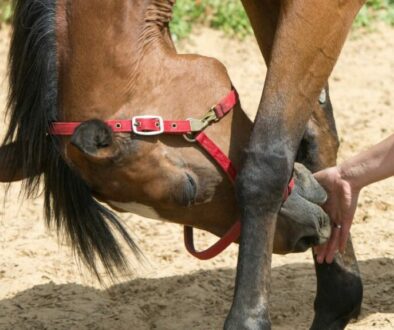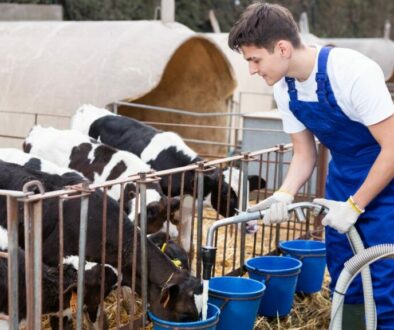How To Become An Animal Control Officer?
Protecting our four-legged friends is just as important as protecting our two-legged ones. If you have a passion for animal welfare, a career as an animal control officer might just be the perfect fit for you. In this article, we’ll discuss the steps you can take to become an animal control officer, key skills required for the job, and some of the benefits of working in this field.
Steps To Becoming An Animal Control Officer
The road to becoming an animal control officer is not an easy one. It requires a combination of education, experience, and certification. As an animal control officer, you will be responsible for enforcing animal laws and regulations, investigating animal abuse cases, and rescuing animals in need. If you are passionate about animal welfare and want to make a difference in the lives of animals, then this career path might be perfect for you. Here’s a step-by-step guide on how to kick start your career:
- Get your high school diploma:
A high school diploma or equivalent is the minimum requirement for most animal control officer jobs. It is important to have a solid educational foundation to build upon.
- Acquire relevant education:
While there are no specific degree requirements for becoming an animal control officer, relevant courses and degrees in areas such as animal behavior, animal care, animal control, and criminal justice can be beneficial. Having a background in these areas will give you an edge over other candidates.
- Gain experience working with animals:
Animal control officers work with a variety of animals, from domestic pets to wildlife. It is important to have hands-on experience working with animals to understand their behavior and needs. Volunteer in animal shelters, rescue groups, or any other setting that will give you hands-on experience working with animals. This will help in building a resume and putting you in a good position when it comes to job searching. For Volunteer opportunities, check out the ASPCA (American Society for the Prevention of Cruelty to Animals), the Humane Society of the United States (HSUS), Best Friends Animal Society, and more reputed organizations like these.
- Complete the required training:
Many states require animal control officers to complete training or certification, which can include courses in animal behavior, capture, and restraint. These courses will give you the necessary skills and knowledge to perform your job duties effectively. National Animal Care & Control Association (NACA) Offers training programs and certification for animal control officers.
- Apply for open positions:
Once you have the education and experience needed, start looking for job openings and apply for positions at local animal control agencies or law enforcement offices. Networking with other professionals in the field can also help you in finding job opportunities. For more job opportunities, you can check out official organizations like USAJOBS, NACA Jobs and popular job websites like Indeed, ZipRecruiter etc.
- Pass the required exams:
Many states require animal control officers to pass written and physical exams to demonstrate their competency on the job. These exams are designed to test your knowledge and skills in handling animals and enforcing animal laws.
Becoming an animal control officer is a rewarding career that requires dedication and passion. It is a job that requires you to be on call 24/7, as animals in need can require assistance at any time. You will be responsible for ensuring the safety and well-being of animals, and enforcing animal laws to protect both animals and humans. If you are ready to take on this challenge, then follow these steps and start your journey towards becoming an animal control officer.
Skills Needed For Becoming An Animal Control Officer
The job of an animal control officer is a challenging one that requires a specific set of skills. As an animal control officer, you’ll be responsible for enforcing animal-related laws and regulations, investigating animal cruelty cases, and ensuring the safety of both animals and humans in your community. Here are some of the key skills you’ll need to be successful in this field:
- Critical thinking: As an animal control officer, you’ll need to be an effective problem solver and be able to think on your feet when faced with challenging situations. For example, you may need to come up with a plan to safely capture a loose dog in a busy neighborhood or figure out how to safely remove a wild animal from a residential area.
- Physical fitness: This is a physically demanding job that requires a lot of walking, standing, and lifting. You’ll need to be in good shape to handle the demands of the job. You may need to chase after a loose animal or carry heavy equipment, such as traps or cages, for long distances.
- Attention to detail: As an animal control officer, you’ll be responsible for maintaining accurate records and taking care of administrative tasks. Attention to detail is crucial to ensure that all paperwork is completed correctly and that all animals are properly documented.
- Communication skills: You’ll have to deal with the public on a daily basis. You’ll need to be able to communicate effectively with people from all backgrounds in potentially stressful situations. For example, you may need to explain to a pet owner why their animal needs to be quarantined or talk to a group of concerned citizens about a recent animal-related incident in their neighborhood.
- Empathy: As an animal control officer, you’ll come across animals that are injured, sick, or abandoned. You’ll need to have empathy for the animals in your care and be able to handle them with compassion. This may involve providing basic medical care, such as administering first aid or transporting the animal to a veterinary clinic.
- Patience: Some animals can be difficult to handle, and some situations can be stressful. Patience is key to being a successful animal control officer. You may need to spend hours waiting for a scared animal to come out of hiding or work with a pet owner to resolve a long-standing issue.
Becoming an animal control officer can be a rewarding career for those who are passionate about animal welfare and public safety. If you possess these key skills and are interested in pursuing a career in this field, consider reaching out to your local animal control agency to learn more about the requirements and opportunities available in your area.
What is An Animal Control Officer?
An animal control officer is a public servant who is responsible for enforcing animal-related laws and regulations within a local jurisdiction. They work tirelessly to ensure the safety and well-being of both animals and humans alike.
Animal control officers have a wide range of responsibilities, including capturing and controlling stray or dangerous animals, investigating animal abuse and neglect, and educating the public on animal welfare issues. They are often called upon to rescue animals in distress, such as those trapped in cars, wells, or other dangerous situations.
Animal control officers work in a variety of settings, including animal shelters, law enforcement agencies, and local governments. They may be called upon to work in all weather conditions, and the job can be physically and emotionally demanding.
Animal control officers are highly trained professionals who must possess a deep understanding of animal behavior, as well as knowledge of local and state laws related to animal welfare. They must also be skilled in handling animals safely and humanely, and must be able to communicate effectively with members of the public.
Animal control officers are often the first line of defense in protecting both animals and humans from harm. They play a critical role in ensuring that animals are treated with the respect and care they deserve, and that they are not subjected to abuse, neglect, or other forms of mistreatment.
Animal control officers are passionate about their work, and they are dedicated to making a difference in the lives of animals and the communities they serve. They are true heroes, and their contributions to society cannot be overstated.
The Benefits of Working as An Animal Control Officer
While the job of an animal control officer can be challenging, there are many benefits to this career path. Here are just a few:
- Fulfilling work: Protecting and helping animals in need can be incredibly rewarding.
- Job security: There will always be a need for animal control officers, so job security in this field is typically strong. According to the Bureau of Labor Statistics, the average yearly salary in the United States is around $39,000 as of May 2022.
- Engagement with the community: Animal control officers are often involved in community outreach and education programs, giving them an opportunity to engage with the public.
- Diversity of responsibilities: No two days on the job are the same, which adds variety and excitement to the role.
- Opportunities for growth: As an animal control officer gains experience and expertise, there are opportunities for advancement, including management roles or positions in other animal-related careers.
Animal control officers are responsible for enforcing animal-related laws and regulations, responding to complaints about animal abuse or neglect, and rescuing animals in danger. They work with a variety of animals, including domestic pets, wildlife, and livestock. In addition to responding to calls from concerned citizens, animal control officers also conduct routine patrols to ensure that animals are being properly cared for and that owners are following local animal-related laws.
One of the most rewarding aspects of being an animal control officer is the opportunity to help animals in need. Animal control officers often work closely with animal shelters and rescue organizations to find homes for abandoned or stray animals. They also provide medical care to injured animals and ensure that animals are being treated humanely. In some cases, animal control officers may work with law enforcement agencies to investigate cases of animal cruelty or neglect.
Animal control officers also play an important role in educating the public about responsible pet ownership and animal welfare. They may conduct educational programs at schools or community events, teaching people about the importance of spaying and neutering pets, proper animal care, and the dangers of animal abuse.
For those interested in a career as an animal control officer, there are several educational and experience requirements to consider. Most jurisdictions require animal control officers to have a high school diploma or equivalent, as well as some prior experience working with animals. Some jurisdictions also require specialized training or certification in animal control or animal welfare.
With the right education, experience, and mindset, becoming an animal control officer is a fulfilling career path for those passionate about animal welfare. Take the time to explore the requirements for your local jurisdiction and begin your journey towards a rewarding career protecting and serving our furry friends.




